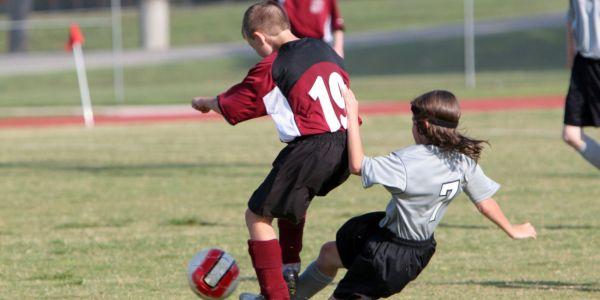
Pressure is part of sports for young athletes.
In fact, you would be hard pressed to find athletes who say they haven’t experienced some pressure.
As sports kids become more competitive, pressure seems to increase and, for many athletes, that can be an overwhelming aspect of the athletic experience.
Athletes respond to pressure in different ways.
That is, pressure has different sources, is perceived differently and affects athletes in different ways.
Pressure often comes in the form of expectations kids might feel:
- I have to be perfect and make no mistakes.
- I have to perform well for my teammates.
- I can’t let down the coach or I’ll get benched.
- I want my parents to be happy with my performance.
Pressure is self-induced most of the time. Athletes think others have high demands for their game–often the same demands or standards they have for their game.
To be honest, sometimes parents and coaches have demands for athletes that feel like pressure.
Some athletes feel the need to carry their teams on their back or outperform previous performances.
Most of this pressure comes from athletes’ excessively high expectations–or beliefs that others have high expectations for them–which leads to the feeling or pressure. Some athletes thrive, while others might choke.
When sports kids feel the weight of expectations and the pressure to perform, they might try to do too much. This leads to trying to be perfect and avoiding mistakes.
But the opposite can happen… Athletes under pressure might feel the need to play it safe and perform tentatively.
The pressure to perform can be heightened for athletes in playoffs.
“Pressure is self-inflicted because you’re focused too much on results. You want to ask yourself, ‘what do I have to do each day so you can win a championship’?” ~Nick Saban
But make no mistake about it, kids can’t heap expectations on themselves and perform freely. It’s a big ask to feel they should hoist their team on their back or score a hat trick every game.
Here’s the deal: Performing with pressure requires that kids avoid playing safe–no matter if it is regular season, playoffs or a championship competition.
In order to cope with perceived pressure, kids should manage both their expectations and the expectations they feel from others.
What expectations (high standards) do your kids place on their performance leading up to a competition?
Most of the athletes we coach on the mental game perform their best when they don’t have strict expectations going into the competition.
To cope better with pressure, they should start by avoiding worrying so much about what they think others expect of their performance, including parents, coaches, fans and friends.
This way they can let go of the expectations they perceive from others and free themselves to focus on execution of the game plan, one play at a time.
Related Kids Sports Psychology Articles:
- Tips for Playing Under Pressure
- Playing Through Adversity
- When Athletes Only Dwell on Post Game Mistakes
*Subscribe to The Sports Psychology Podcast on iTunes
*Subscribe to The Sports Psychology Podcast on Spotify
Helping Perfectionist Young Athletes
Now, you can learn how to help young athletes overcome the difficult cycle of perfectionism, fear of failure and loss of confidence. You can stop guessing about what to do and say to your athlete!
As an active sports mom and parenting author, I’ve asked my brother, a sports psychology expert who had helped his students with these same challenges for over 15 years, to help me develop a program for young athletes.
Our program: “Sports Parents’ Top Dilemma: Helping Young Athletes Kick Perfectionism and Fear of Failure,” will walk you through the problem and arm you with practical solutions you can start implementing today.
You’ll start seeing changes in your young athlete’s confidence almost immediately.
